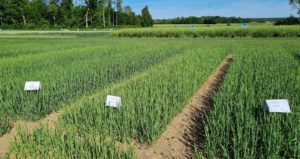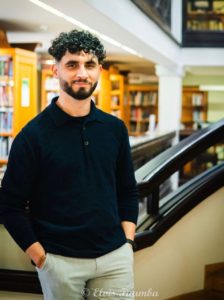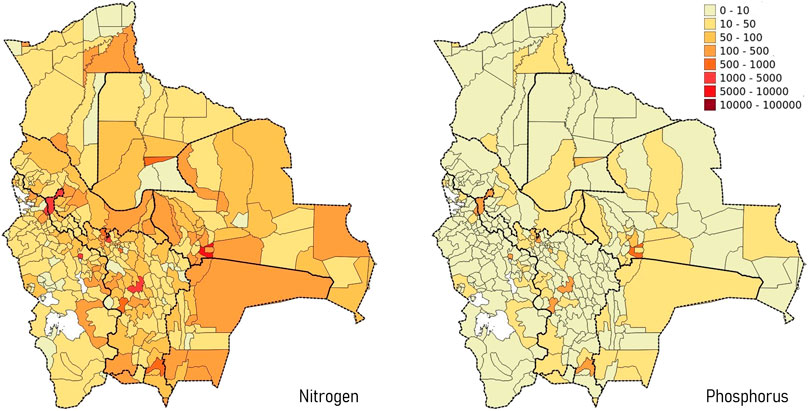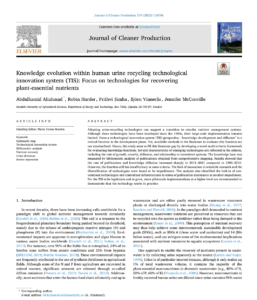 SLU has developed an innovative technology that converts human urine to high-quality solid fertiliser. On Gotland, we’ve also shown that urine can effectively fertilise barley, which can be processed further to produce beer. But there is concern about micropollutants that could be present in urine (e.g., pharmaceuticals). Through a three-year project and with funding from Stiftelsen Lantbruksforskning (Swedish farmers’ foundation for agricultural research), we aim to address this concern. First, we will do a baseline study to evaluate fate of micropollutants in the urine chain (fertiliser, barley & beer). Second, techniques will be developed to remove micropollutants so that only plant-essential nutrients are recycled back to farmland. Third, using social science methods and system dynamics modelling, support for recycling urine among food consumers will be assessed. Finally, all the evidence will be presented to stakeholders in the food industry.
SLU has developed an innovative technology that converts human urine to high-quality solid fertiliser. On Gotland, we’ve also shown that urine can effectively fertilise barley, which can be processed further to produce beer. But there is concern about micropollutants that could be present in urine (e.g., pharmaceuticals). Through a three-year project and with funding from Stiftelsen Lantbruksforskning (Swedish farmers’ foundation for agricultural research), we aim to address this concern. First, we will do a baseline study to evaluate fate of micropollutants in the urine chain (fertiliser, barley & beer). Second, techniques will be developed to remove micropollutants so that only plant-essential nutrients are recycled back to farmland. Third, using social science methods and system dynamics modelling, support for recycling urine among food consumers will be assessed. Finally, all the evidence will be presented to stakeholders in the food industry.
Contact: Prithvi Simha


 My name is Ali Mehaidli. Prior to my arrival here, I was living in Finland, studying Environmental Engineering at Tampere University of Applied Sciences. At SLU, I will be working with the urine treatment research group. My focus will be on the fate and stability of nitrogen during urine dehydration treatment. My internship and thesis project began in January, and I will be here till early June.
My name is Ali Mehaidli. Prior to my arrival here, I was living in Finland, studying Environmental Engineering at Tampere University of Applied Sciences. At SLU, I will be working with the urine treatment research group. My focus will be on the fate and stability of nitrogen during urine dehydration treatment. My internship and thesis project began in January, and I will be here till early June.

 My name is Jade Borel and I come from France, Grenoble. I am in the third year of environmental engineering school in Rennes. At SLU, I am part of the urine drying research team. I will work with urease enzyme and analyse how urine
My name is Jade Borel and I come from France, Grenoble. I am in the third year of environmental engineering school in Rennes. At SLU, I am part of the urine drying research team. I will work with urease enzyme and analyse how urine


